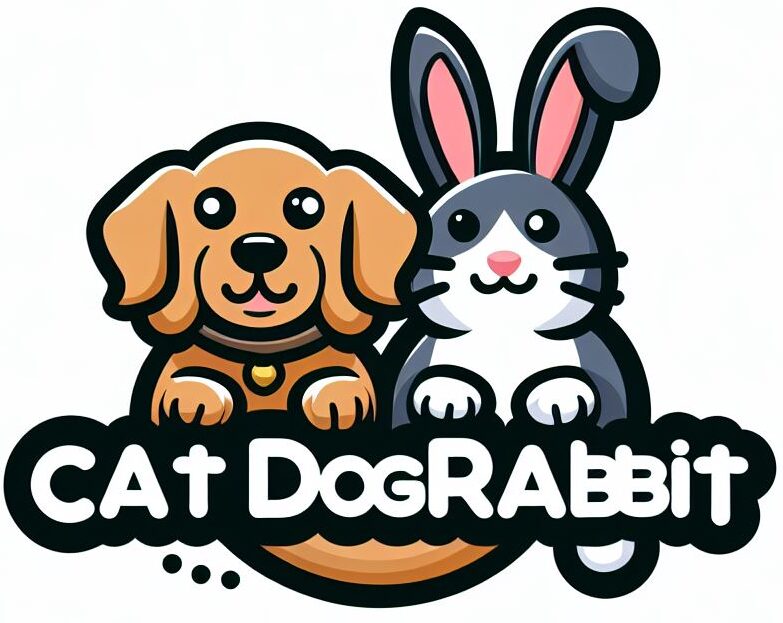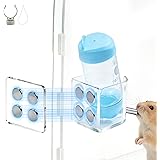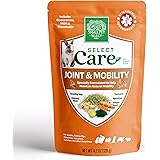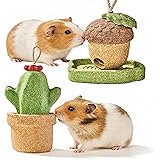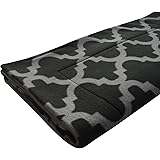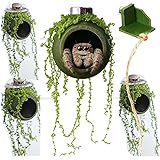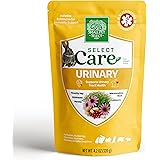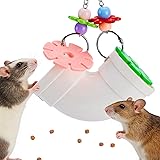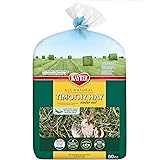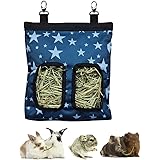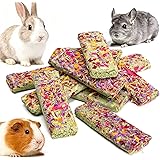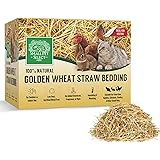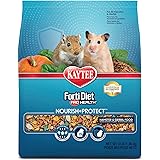
Magnetic Hamster Water Bottle Holder with Water Bottle, Adjustable Height Drop-Resistant Stand, Fits Bottles up to 2" Dia, Universal for Small Pets (Hamsters, Gerbils, Mice), Hamster Cage Accessories
$13.99 (as of 02/08/2026 14:07 GMT +00:00 - More infoProduct prices and availability are accurate as of the date/time indicated and are subject to change. Any price and availability information displayed on [relevant Amazon Site(s), as applicable] at the time of purchase will apply to the purchase of this product.)Small Pet Select - Select Care Joint Mobility Support Supplement, Natural High Fiber Timothy Hay Based Treats for Rabbits, Guinea Pigs, Hamsters, Other Small Animals, 4.2 oz
$10.99 (as of 02/08/2026 14:07 GMT +00:00 - More infoProduct prices and availability are accurate as of the date/time indicated and are subject to change. Any price and availability information displayed on [relevant Amazon Site(s), as applicable] at the time of purchase will apply to the purchase of this product.)Rodizoo 2 Pack Guinea Pig Chew Toys Natural Rabbit Chew Toys Hamster Molar Teeth Toys, Made with Natural Timothy Grass & Vegetables, Mushroom & Tree Shaped Habitat Decoration, Small Animal Toys
$16.99 (as of 02/08/2026 14:07 GMT +00:00 - More infoProduct prices and availability are accurate as of the date/time indicated and are subject to change. Any price and availability information displayed on [relevant Amazon Site(s), as applicable] at the time of purchase will apply to the purchase of this product.)Oxbow Simple Rewards Apple Banana Treats, Timothy Hay Guinea Pig & Bunny Treats, Pet Snack, Made with Oxbow Guinea Pig Hay, Made in USA, Timothy for Rabbit, 3 oz Bag
$3.82 (as of 02/08/2026 14:07 GMT +00:00 - More infoProduct prices and availability are accurate as of the date/time indicated and are subject to change. Any price and availability information displayed on [relevant Amazon Site(s), as applicable] at the time of purchase will apply to the purchase of this product.)Saccison 2PCS Slicker Brush for Dogs & Pet Comb,Professional Dog Grooming Brush (Goldendoodles,Poodles,Labradoodles) with Extra Long Pins to Effectively Remove Tangles, Knots and Mats (Blue, Large)
$13.97 (as of 02/08/2026 14:07 GMT +00:00 - More infoProduct prices and availability are accurate as of the date/time indicated and are subject to change. Any price and availability information displayed on [relevant Amazon Site(s), as applicable] at the time of purchase will apply to the purchase of this product.)Small Pets and Company Guinea Pig Fleece Cage Liner for Midwest Habitat | Fleece Guinea Pig Bedding (Midwest, Gray Quatrefoil)
$51.97 (as of 02/08/2026 14:07 GMT +00:00 - More infoProduct prices and availability are accurate as of the date/time indicated and are subject to change. Any price and availability information displayed on [relevant Amazon Site(s), as applicable] at the time of purchase will apply to the purchase of this product.)Kaytee Clean & Cozy Lavender Paper Bedding For Pet Guinea Pigs, Rabbits, Hamsters, Gerbils, and Chinchillas, 49.2 Liters
$19.95 (as of 02/08/2026 14:07 GMT +00:00 - More infoProduct prices and availability are accurate as of the date/time indicated and are subject to change. Any price and availability information displayed on [relevant Amazon Site(s), as applicable] at the time of purchase will apply to the purchase of this product.)YOMENO 4Pcs Jumping Spider Enclosure Accessories Cocoon-Shaped Jumping Spider Hideaway with Artificial Moss and 1 Pcs Resting Platform Magnetic Small Animal Shelter Toy (Army Green)
$9.99 (as of 02/08/2026 14:07 GMT +00:00 - More infoProduct prices and availability are accurate as of the date/time indicated and are subject to change. Any price and availability information displayed on [relevant Amazon Site(s), as applicable] at the time of purchase will apply to the purchase of this product.)Small Pet Select - Select Care Urinary Support Supplement, Natural High Fiber Timothy Hay Based Treats for Rabbits, Guinea Pigs, Hamsters, Other Small Animals, 4.2 oz
$10.99 (as of 02/08/2026 14:07 GMT +00:00 - More infoProduct prices and availability are accurate as of the date/time indicated and are subject to change. Any price and availability information displayed on [relevant Amazon Site(s), as applicable] at the time of purchase will apply to the purchase of this product.)A healthy diet is crucial for the well-being of rabbits. Just like humans, rabbits require a balanced diet to ensure they receive all the necessary nutrients for optimal health. A healthy diet for rabbits consists of a combination of hay, fresh vegetables and fruits, pellets, and clean water. Providing your bunny with a nutritious diet can help prevent various health problems and promote overall well-being.
A balanced diet is essential for rabbits as it provides them with the necessary nutrients to support their growth, development, and overall health. A healthy diet can help prevent obesity, dental problems, digestive issues, and other health problems that can arise from poor nutrition. By feeding your bunny a well-balanced diet, you are ensuring that they receive all the essential vitamins, minerals, and fiber they need to thrive.
Key Takeaways
- A healthy rabbit diet consists of hay, fresh vegetables and fruits, pellets, and water.
- Hay is the foundation of a rabbit’s diet and should make up the majority of their food intake.
- Fresh vegetables and fruits provide essential nutrients and variety to a rabbit’s diet.
- Pellets should be given in moderation as a supplementary food for your bunny.
- Water is crucial for a rabbit’s hydration and overall health.
Understanding Your Bunny’s Nutritional Needs
Rabbits have specific nutritional requirements that must be met to ensure their health and well-being. The primary component of a rabbit’s diet should be high-quality hay. Hay provides essential fiber that helps maintain proper digestion and prevents gastrointestinal issues. It also helps wear down their teeth, which continuously grow throughout their lives.
In addition to hay, rabbits should also be fed fresh vegetables and fruits. These provide additional nutrients and variety to their diet. However, it’s important to introduce new foods gradually to avoid digestive upset. Rabbits have sensitive digestive systems, so sudden changes in their diet can cause gastrointestinal issues.
Hay: The Foundation of a Rabbit’s Diet
Hay is an essential component of a rabbit’s diet and should make up the majority of their food intake. There are several types of hay suitable for rabbits, including timothy hay, orchard grass hay, and oat hay. These types of hay are high in fiber and low in calories, making them ideal for maintaining a healthy weight.
Hay provides several benefits for rabbits. Firstly, it helps maintain proper digestion by keeping the gastrointestinal tract moving. The fiber in hay helps prevent blockages and keeps the digestive system functioning properly. Secondly, hay helps wear down a rabbit’s teeth, which continuously grow throughout their lives. Chewing on hay helps prevent dental problems such as overgrown teeth and malocclusion.
Fresh Vegetables and Fruits for Optimal Health
| Vegetable/Fruit | Nutrient | Amount per serving | Health Benefits |
|---|---|---|---|
| Spinach | Vitamin K | 181% DV | Supports bone health and blood clotting |
| Broccoli | Vitamin C | 135% DV | Boosts immune system and collagen production |
| Carrots | Vitamin A | 428% DV | Improves vision and skin health |
| Blueberries | Antioxidants | 4.4 g | Protects against cellular damage and inflammation |
| Avocado | Healthy fats | 21 g | Reduces risk of heart disease and improves brain function |
Fresh vegetables and fruits should be included in a rabbit’s diet to provide additional nutrients and variety. However, it’s important to choose the right vegetables and fruits as some can be harmful to rabbits. Safe vegetables for rabbits include leafy greens like romaine lettuce, spinach, and kale, as well as carrots, bell peppers, and broccoli. Safe fruits for rabbits include apples, bananas, strawberries, and blueberries.
Fresh produce provides several benefits for rabbits. Vegetables and fruits are a good source of vitamins and minerals that are essential for their overall health. They also provide hydration since they have a high water content. However, it’s important to feed vegetables and fruits in moderation as too much can cause digestive upset.
Pellets: The Supplementary Food for Your Bunny
Pellets are a supplementary food that can be included in a rabbit’s diet. They should not be the main component of their diet but can provide additional nutrients. When choosing pellets for your bunny, it’s important to select high-quality pellets that are specifically formulated for rabbits. Avoid pellets that contain added sugars or artificial ingredients.
Pellets provide several benefits for rabbits. They are a concentrated source of nutrients and can help ensure that your bunny receives all the necessary vitamins and minerals. However, it’s important not to overfeed pellets as they can lead to obesity and other health problems. Pellets should only make up a small portion of your bunny’s diet.
Water: The Importance of Hydration for Rabbits

Water is essential for the health and well-being of rabbits. It’s important to provide your bunny with clean and fresh water at all times. Rabbits should have access to water 24/7 to ensure they stay hydrated. Dehydration can lead to serious health problems and should be avoided.
Rabbits require a significant amount of water to maintain proper hydration. On average, a rabbit should consume about 50-150 milliliters of water per kilogram of body weight per day. It’s important to regularly check your bunny’s water bottle or bowl to ensure it is clean and filled with fresh water. Water should be changed daily to prevent bacterial growth.
Avoiding Foods That Can Harm Your Bunny
There are several foods that are toxic to rabbits and should be avoided at all costs. These include chocolate, caffeine, alcohol, onions, garlic, avocado, and certain plants like lilies and rhubarb. These foods can cause serious health problems and even be fatal if ingested by rabbits.
It’s important to keep your bunny safe from harmful foods by ensuring they do not have access to them. Store food items securely and keep them out of reach of your bunny. Be cautious when introducing new foods to your bunny’s diet and research whether they are safe for rabbits before offering them.
Feeding Schedule and Portion Control for Rabbits
Establishing a feeding schedule and practicing portion control is important for maintaining a healthy diet for your bunny. Rabbits should be fed twice a day, once in the morning and once in the evening. This helps regulate their digestion and prevents overeating.
When it comes to portion control, it’s important not to overfeed your bunny. The amount of food your bunny needs will depend on their size, age, and activity level. A general guideline is to feed about 1/4 cup of pellets per 5 pounds of body weight per day. Hay should be available at all times, and fresh vegetables and fruits should be given in moderation.
Special Dietary Needs for Senior and Ill Rabbits
Senior rabbits and those with certain health conditions may require special dietary adjustments. As rabbits age, their metabolism slows down, and they may require fewer calories. It’s important to monitor their weight and adjust their portion sizes accordingly.
Rabbits with certain health conditions, such as dental problems or gastrointestinal issues, may require a modified diet. For example, rabbits with dental problems may need softer foods or hay that is cut into smaller pieces. It’s important to consult with a veterinarian if your bunny has any health issues to determine the best diet for them.
Tips for Transitioning Your Bunny to a New Diet
When introducing new foods to your bunny’s diet, it’s important to do so gradually to avoid digestive upset. Start by offering small amounts of the new food and gradually increase the portion size over several days. Monitor your bunny for any signs of digestive upset, such as diarrhea or bloating.
A smooth transition to a new diet can be achieved by mixing the new food with their current diet. This allows your bunny to become accustomed to the new taste and texture gradually. It’s important to be patient during the transition process and make adjustments as needed based on your bunny’s response.
In conclusion, a healthy diet is essential for the overall health and well-being of your bunny. By understanding your bunny’s nutritional needs and following a balanced diet, you can help your bunny live a long and healthy life. Providing them with high-quality hay, fresh vegetables and fruits, pellets, and clean water will ensure they receive all the necessary nutrients for optimal health. Remember to avoid harmful foods, establish a feeding schedule, practice portion control, and make any necessary dietary adjustments for senior or ill rabbits. With proper nutrition, you can help your bunny thrive and enjoy a happy and healthy life.
FAQs
What kind of food should I feed my rabbit?
Rabbits should be fed a diet that consists mainly of hay, fresh vegetables, and a small amount of pellets. Treats should be given sparingly.
What type of hay is best for rabbits?
Timothy hay is the best type of hay for rabbits. Other types of hay, such as orchard grass or meadow hay, can also be fed.
What vegetables can rabbits eat?
Rabbits can eat a variety of vegetables, including leafy greens like kale and spinach, carrots, bell peppers, and broccoli. However, some vegetables, such as iceberg lettuce, should be avoided.
How much food should I feed my rabbit?
Rabbits should be fed a small amount of pellets (about 1/4 cup per day) and unlimited hay. Vegetables should be given in moderation, about 1-2 cups per day.
Can rabbits eat fruit?
Fruit should be given as a treat and in small amounts. Rabbits can eat fruits such as apples, bananas, and strawberries.
What foods should I avoid feeding my rabbit?
Rabbits should avoid foods high in sugar and fat, such as chocolate, candy, and junk food. Foods that are toxic to rabbits, such as avocado and rhubarb, should also be avoided.
